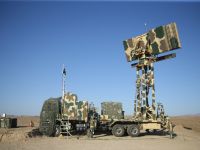Rwanda's parliament began Monday debating a bill to set up people's tribunals at the smallest administrative level to try suspects implicated in the genocide of up to 800,000 people in 1994.
The tribunals, known as "gacaca", would sit at the local "cell" level, the smallest element within Rwanda's strongly hierarchical district administration system, parliamentary sources said.
Debate in the transitional national assembly was expected to continue into Tuesday before a vote on the law.
"Gacaca" have been presented as a system of participatory justice concerning third and fourth category genocide suspects, not including those held to be ringleaders or the main criminals behind the systematic massacre in 1994 of between 500,000 and 800,000 minority Tutsis and political moderate Hutus.
Rwandan courts have sentenced more than 100 people to death for taking part in the genocide and 22 such convicts were executed in April 1998, while a separate UN International Criminal Tribunal sitting in Tanzania is trying key suspects.
The independent Hirondelle news agency has reported that more than 100,000 suspects are still in Rwandan jails awaiting trial.
According to an opinion poll carried out last April by the Rwandan League from the Promotion and Defense of Human Rights, "93 percent of Rwandans want gacaca and 53 percent consider that they would contribute to the process of national reconciliation."
The genocide was carried out mainly by Hutu extremist militias and troops between April 1994 and July that year, when then rebels of the mainly Tutsi Rwandan Patriotic Front (RPF) seized power -- KIGALI(AFP)
© 2000 Al Bawaba (www.albawaba.com)







